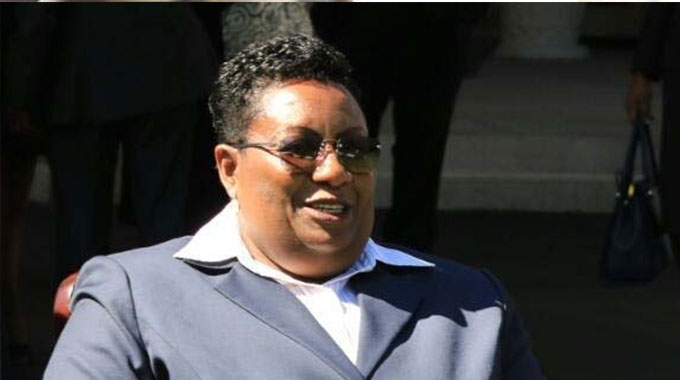Zimbabwe Anti-Corruption Commission hails Government

Harare Bureau
The Zimbabwe Anti-Corruption Commission (Zacc) has applauded Government for establishing specialised Anti-Corruption Courts countrywide and the Special Anti-Corruption Unit (SACU), for effective prosecution and determination of graft cases.
In her maiden media address in Harare recently, Zacc chairperson, Justice Loice Matanda-Moyo, hailed the police for setting up its own Anti-Corruption Unit to collaborate the commission’s investigative efforts.
“We applaud efforts by the Government in establishing and launching specialised Anti-Corruption Courts in the provinces to tackle cases of corruption and Special Anti-Corruption Unit which prosecutes cases of corruption,” she said.
Justice Matanda-Moyo said corruption was the biggest enemy of development in Africa, with corrosive effects that reverse hard won developmental gains.
To that end, nations had since united against the scourge.
“Zimbabwe is a signatory to the African Union Convention Against Corruption which was signed on 11 July 2003,” she said.
“This is a continental instrument adopted with comprehensive set of standards, measures and rules that all African countries can apply in order to strengthen their practices, governance and regulatory framework to effectively fight corruption.
“Member States part to this convention are, therefore, expected to criminalise acts of corruption, to establish, maintain and strengthen independent national anti-corruption bodies, to strengthen internal accounting, auditing and follow up systems, to adopt measures that allow for recovery of proceeds of corruption and money laundering, to adopt measures that protect whistle blowers and witnesses in corruption cases and to promote education of the members of the public on the ills of corruption.”
Zacc is conducting an in-house training course for officers on the recently gazetted Statutory Instrument 143 of 2019, which empowers the anti-graft body to effect arrests.
The changes were announced in an Extraordinary Government Gazette published recently through Statutory Instrument 143 of 2019.
The new regulations modified the previous legal instrument that deals with peace officers.
Justice, Legal and Parliamentary Affairs Minister Ziyambi Ziyambi — in terms of Section 2 (paragraph h) of the definition of “peace officer” under the Criminal Procedure and Evidence Act (Chapter 9:07) — included Zacc officers.
Recently, 23 Zacc officers were trained by the Zimbabwe Republic Police in line with President Mnangagwa’s zero tolerance to the scourge.
The training was part of measures put in place by the commission to restore public confidence, trust and credibility in the fight against corruption.
The Zacc officers underwent a two-month training course covering subjects such as handling reports, compiling of dockets, managing suspects, Principles of Criminal Law, Criminal Procedure and Evidence Act, criminal justice system, organised crime, cybercrime, forensic investigation and weapons handling.
According to Zacc, the programme was attended by lawyers, accountants, auditors and intelligence officers from Zacc, who had no experience and exposure to investigations as they were still fresh from college.











Comments